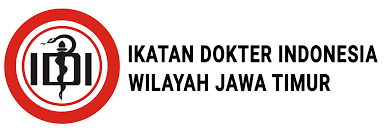Exploring Resveratrol Intervention in Managing Menopausal Symptoms: A Comprehensive Systematic Review of Clinical Trials
Keywords:
Menopause Symptoms, Post-menopausal, Resveratrol, ManagementAbstract
Introduction: Menopause, a significant event in a woman's reproductive lifespan, entails hormonal changes and a range of symptoms affecting various bodily systems. Conventional treatments like hormone replacement therapy (HRT) have limitations and associated risks, prompting interest in alternative therapies such as resveratrol.
Materials/Methods: The literature search was conducted in six databases. The outcome of interest measures the mean changes in bone mineral density (BMD), Quality of Life (QoL), bone biomarkers, menopause symptoms, and cognitive and mood functions pre- and post-interventions. Resveratrol was administered in various forms and doses, including trans-resveratrol 75 mg twice or once daily, 250/500/1000 mg resveratrol tablets, and a combination of fermented soy containing 10 mg equol and 25 mg resveratrol. Quality appraisal was done using the Cochrane Risk of Bias Tool 2.
Results: Resveratrol supplementation in post-menopausal women, involving 745 participants across various studies, has shown remarkable health benefits. These include improved cerebral vasoreactivity (CVR) to hypercapnia, a 10% decrease in overall pain, and enhanced quality of life. Additionally, resveratrol boosts flow-mediated dilation (FMD) by 23% and increases serum sex hormone-binding globulin (SHBG) concentrations by 10%, benefiting bone mineral density (BMD). Over the long term, it leads to a significant 35% increase in FMD and a substantial 33% enhancement in overall cognitive performance, highlighting its diverse benefits.
Conclusion: For women in the post-menopausal stage, resveratrol supplementation shows potential for improving cardiovascular health, relieving pain, enhancing quality of life, supporting bone health, boosting cognitive function, and promoting overall mental well-being.
Downloads
Published
Issue
Section
License
Copyright (c) 2024 Bernadine Tiara Maharani, Wahidatur Rosyidah, Muhammad Daffa' Naufal, Hervani Putri, Leny Silvia Farida

This work is licensed under a Creative Commons Attribution 4.0 International License.








































